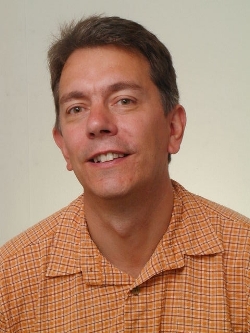
Mike Simmons* thinks we have created a case of first class confusion.
Geoscientist 18.7 July 2008
I lead the recruitment effort for one a major oil and gas sector employer of graduate geoscientists in the UK. My colleagues and I sift through numerous applications and interview many students from nearly all British (and many overseas) universities. Three things trouble me.
First up is variety in the application of the grading system. A student with 1st Class Honours from one university may have completely different abilities and a standard of knowledge from a similarly placed student from a different university. Second, graduates emerge with a considerable variety of key skills – presumably reflecting both curriculum variations and teaching standards.
Third, within four-year MGeol and MSci degrees, the standard of projects and supporting tuition that students are given to work on varies within wide limits. Some receive well thought-out and challenging projects while others are told to "work up" a set of vaguely associated rocks from their supervisors' cupboards.
Old wiseacres may say “Ah, 'twas ever thus”; and they may be right. Some departments and lecturers are better than others. I was once a lecturer, and head of department, myself. But the points I raise all relate to graduates from departments with excellent reputations in reputable "red-brick" universities. Like it or not, we have a standards problem in geoscience education.
Common standards in degree awards are currently assured by the external examiner system, and common standards in teaching by application of the Teaching Quality Assessment (TQA) of the government’s Quality Assurance Agency (which now focuses on the administration of the teaching process rather than provision and content). The Geological Society also plays an important role with its accreditation system - not least in its ability to define key skills that geoscience graduates should be taught. It is encouraging to know that these are currently in the process of redefinition.
But between all these players is there a gap? Diversity of tuition is to be encouraged to a point; but can we more precisely define and teach the core skills that should be mandatory in any student graduating with a geology/earth science degree? Should the TQA be regarded as equally significant to the RAE exercise in universities?
I do not wish to imply that geology students should all be taught the same things, just to provide grist to the mill of industry. No employer would expect a graduate recruit to be the finished article. Industry clearly has a duty to provide further training to its staff but it helps when graduates have a certain set of common core skills to build on, and are assessed and graded in a reasonably standard manner.
Perhaps as many as 40,000 geoscience students are currently being taught in China, as opposed to c. 5000 in Europe. British geoscience departments are some of the best in the world – but the world has moved on. If we are to retain our influence we need to refocus our education standards to allow our students to compete for jobs in an increasingly global market.
* Director of Geoscience, Neftex Petroleum Consultants Ltd